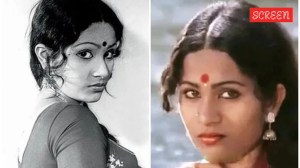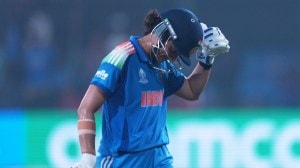The Aussie Way: No Time for Losers
It was Kepler Wessels, telling a story against himself, who highlighted the sort of mind games the Australians like play with the opposition...

It was Kepler Wessels, telling a story against himself, who highlighted the sort of mind games the Australians like play with the opposition. In early 1980, with the Kerry Packer war over and Wessels recruited by Tony Greig, the young Afrikaner had planned to make his way in Australia. He had a burning ambition to become a Test batsman and took a decision to make Australia his home. He wrote a number of letters to former Packer associates Ian and Greg Chappell, Rod Marsh, Dennis Lillee in the hope of finding a home in one of their state sides. The response was far from encouraging.
‘‘With handwriting like that it suggests you need a decent Australian education if you want to succeed’’, came the response from Ian Chappell. ‘‘It is the worst handwriting I have ever seen.’’
Now Wessels admired the elder, often brusque-sounding Chappell brother. Once, during the Packer era, when Wessels found he had developed a technical problem, Chappell readily gave of his time and coaching advice to the future South African captain. This even included taking a taxi to the Channel 9 studios, getting hold of TV footage and the two of them going through several hours of tapes and working out how to correct the fault.
This being the case, why then did Ian Chappell make such a disparaging comment of Wessels’ handwriting? Chappell’s state, South Australia, had no places available and it was a tip-off to his brother Greg, who had assumed Queensland and Australia captaincy, to rescue the South African from disappearing with the others into the wilderness.
Life is tough in Australia and New Zealand (South Africa as well, in the post-apartheid society). You learn from an early age how to stand on your own feet, to become competitive and tough-minded if you want to succeed.
It’s the same with their cricket: A matter of finding a weak spot in the touring team’s psyche and exploiting it. When you look at tournaments such as the high-powered ODIs, they don’t lose too many of those. The last time they missed the final was in 2001/02 when New Zealand had the measure of their trans-Tasman cousin and South Africa squeezed home on the strength of runrate. It cost Steve Waugh the one-day captaincy. Message: They will put up with any number of failures, but in the long term they don’t have a place for losers.
It’s a style other cricket nations have tried to emulate. In 1958, John Reid led one of the weakest sides the Kiwis sent abroad and by the end of the tour decided to change the way the game was played in the shaky isles. As with Ian Chappell, it required a tougher mind-set and perfecting skills. It took him a decade, but the New Zealand side of the 1970s and 1980s and beyond owe much to his decision to get rid of old establishment policies.
‘‘We were way behind the Australians in our coaching styles and techniques and management and it showed. No wonder they only sent across teams of fringe Test players while the big boys were in South Africa or the West Indies’’, Reid said.
‘‘We were not good enough and if we wanted to become a world-class side we had to shake up the system, radically change coaching methods and boardroom thinking. There was opposition from those who had been too long in their comfort zone. We had to move out of it.’’
Jackie McGlew had a similar experience with the 1960s anti-apartheid demo-plagued tour. ‘‘Somewhere we had lost the plot. The game was stagnant and we needed a change of direction’’, he said. ‘‘It needed revolutionary thinking to get out of the rut of the 1950s and build for the future.’’
Trevor Goddard’s team in Australia in 1963/64 had players such as Eddie Barlow, Peter Pollock and Colin Bland who had a lot of self-belief from a tough upbringing, where individualism was encouraged. McGlew had no father to encourage him, while his mother had to work to keep the children fed and clothed and educated. Hard times for a future Safs Test captain.
It was a similar upbringing to that of Dudley Nourse. When he asked his father Dave (also a Test player) for a coaching lesson in batting, Dudley was handed a plank of wood from the fence in the lane where they lived and told to teach himself.
It is, as Fanie de Villiers says, all a matter of self-belief and how to put that to work and work for your benefit. These days the psychologists are there to help you find that self-reliance and do something positive with it. Yet there is also a matter of upbringing and education. These are the tools on which a generation of tough-minded specialists thrive. Under-17 and under-19 international tournaments are a great starting point: the need is to advance into a tougher, competitive world. There will be ‘‘casualties’’ but that is to be expected as only those who can handle the mind games will survive the rigours of a tough, intellectual game.





- 01
- 02
- 03
- 04
- 05


























